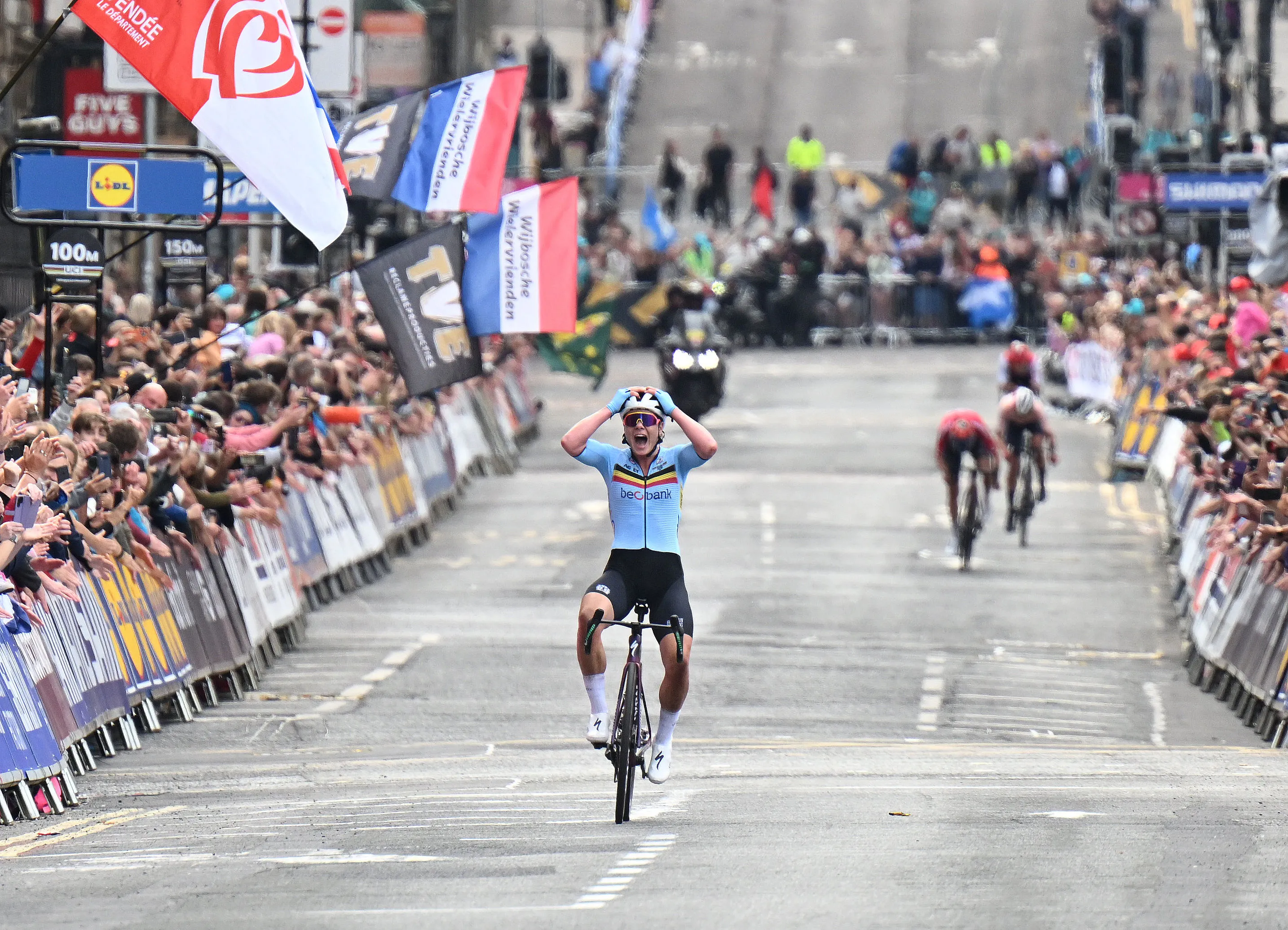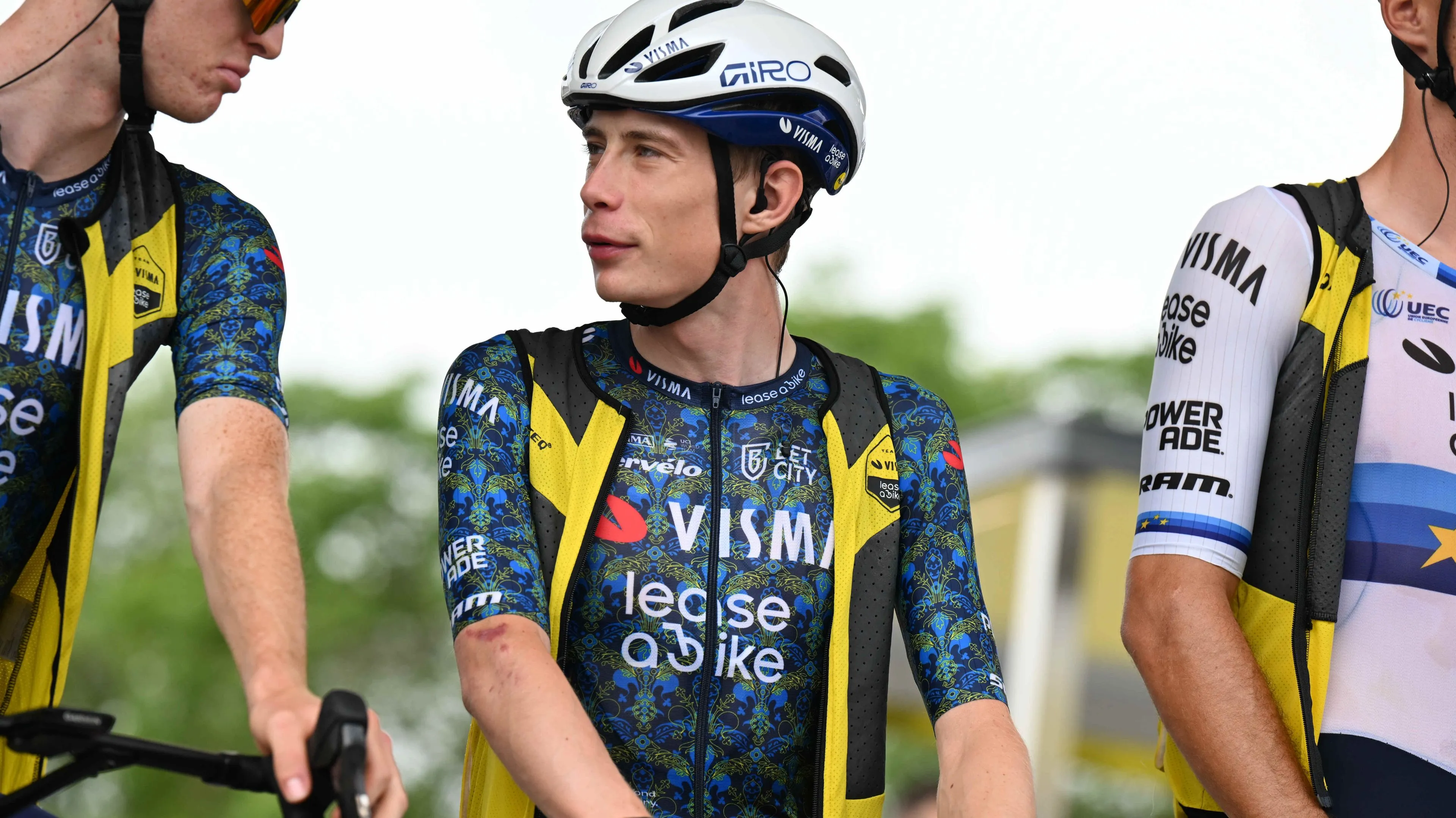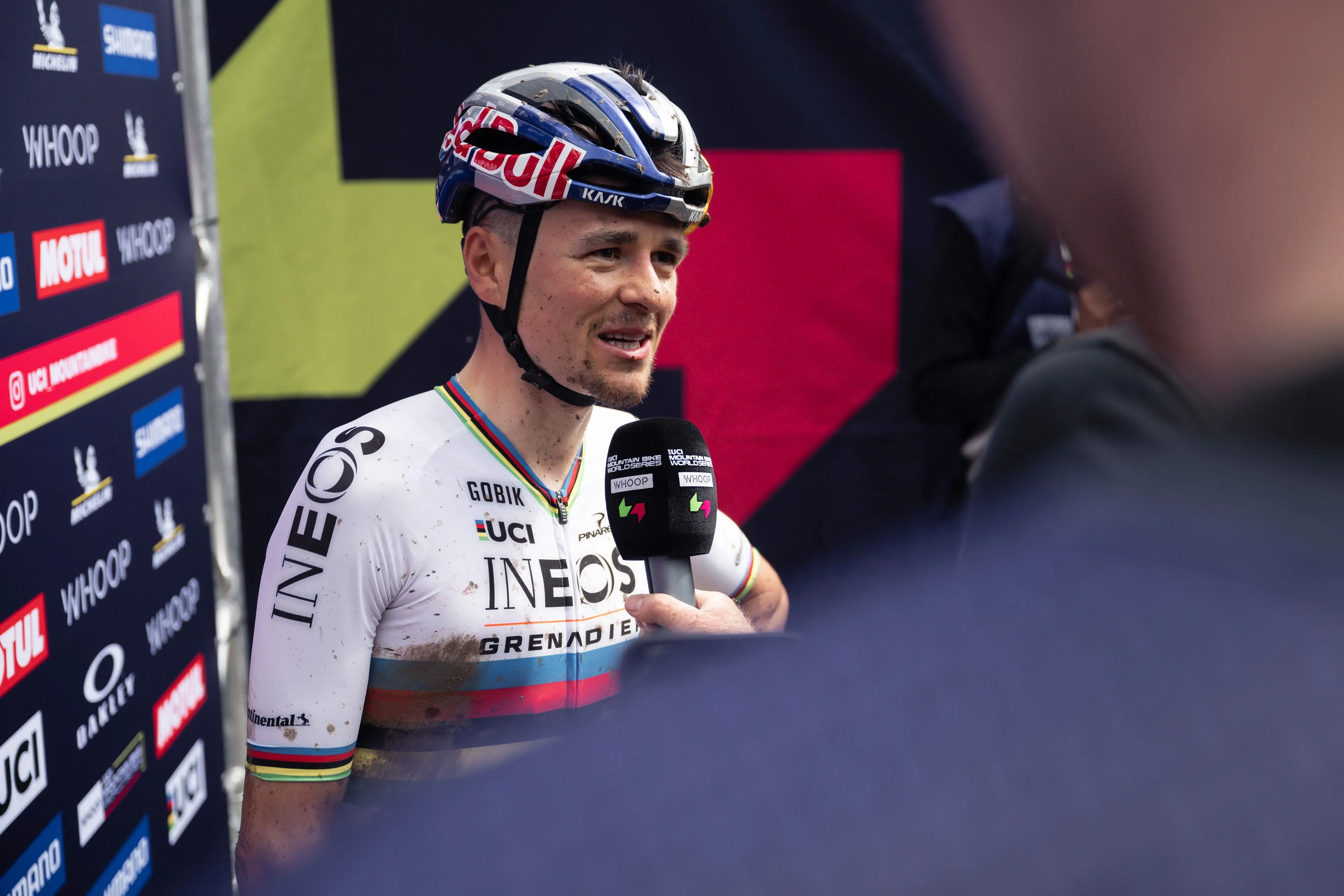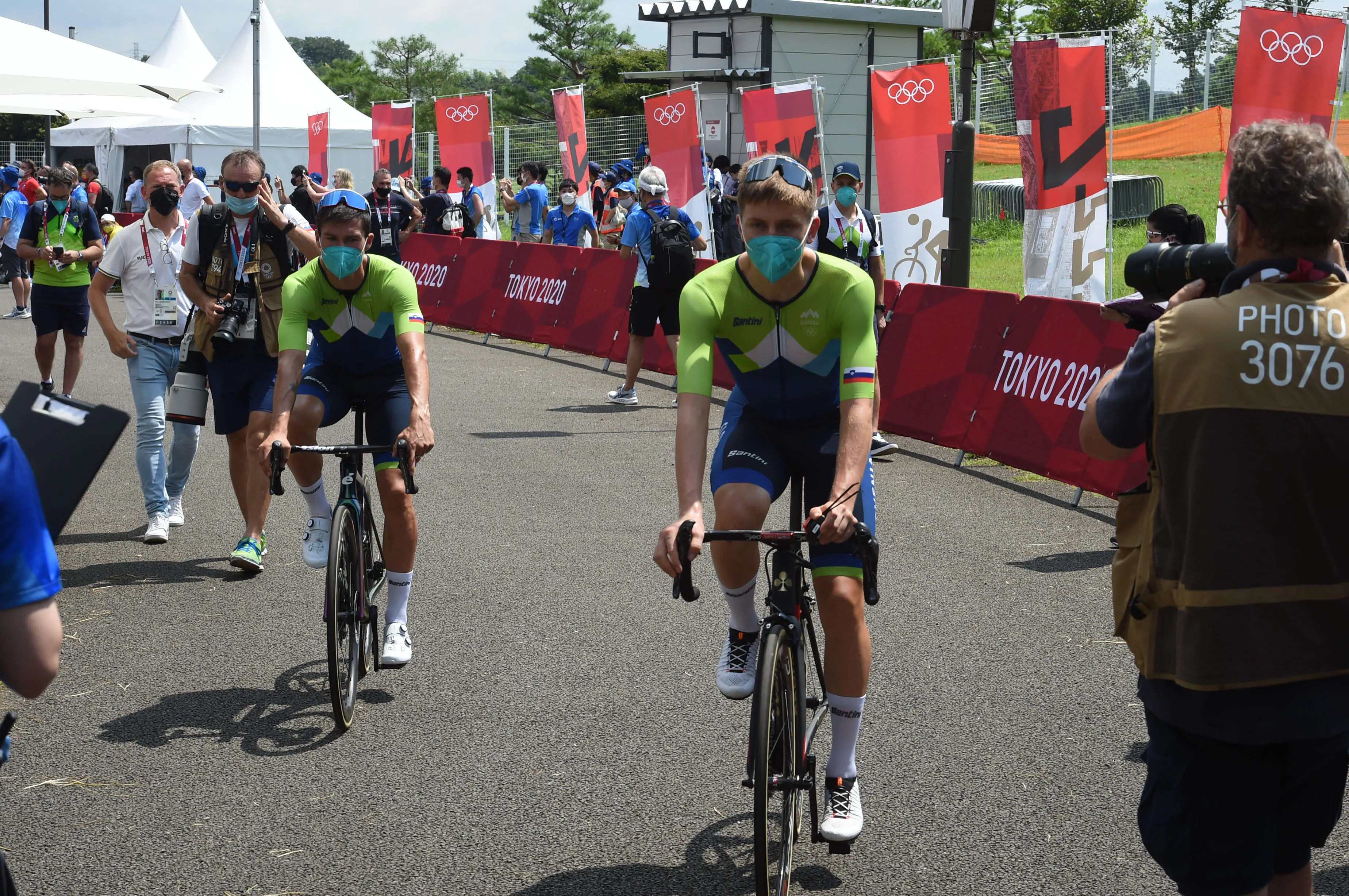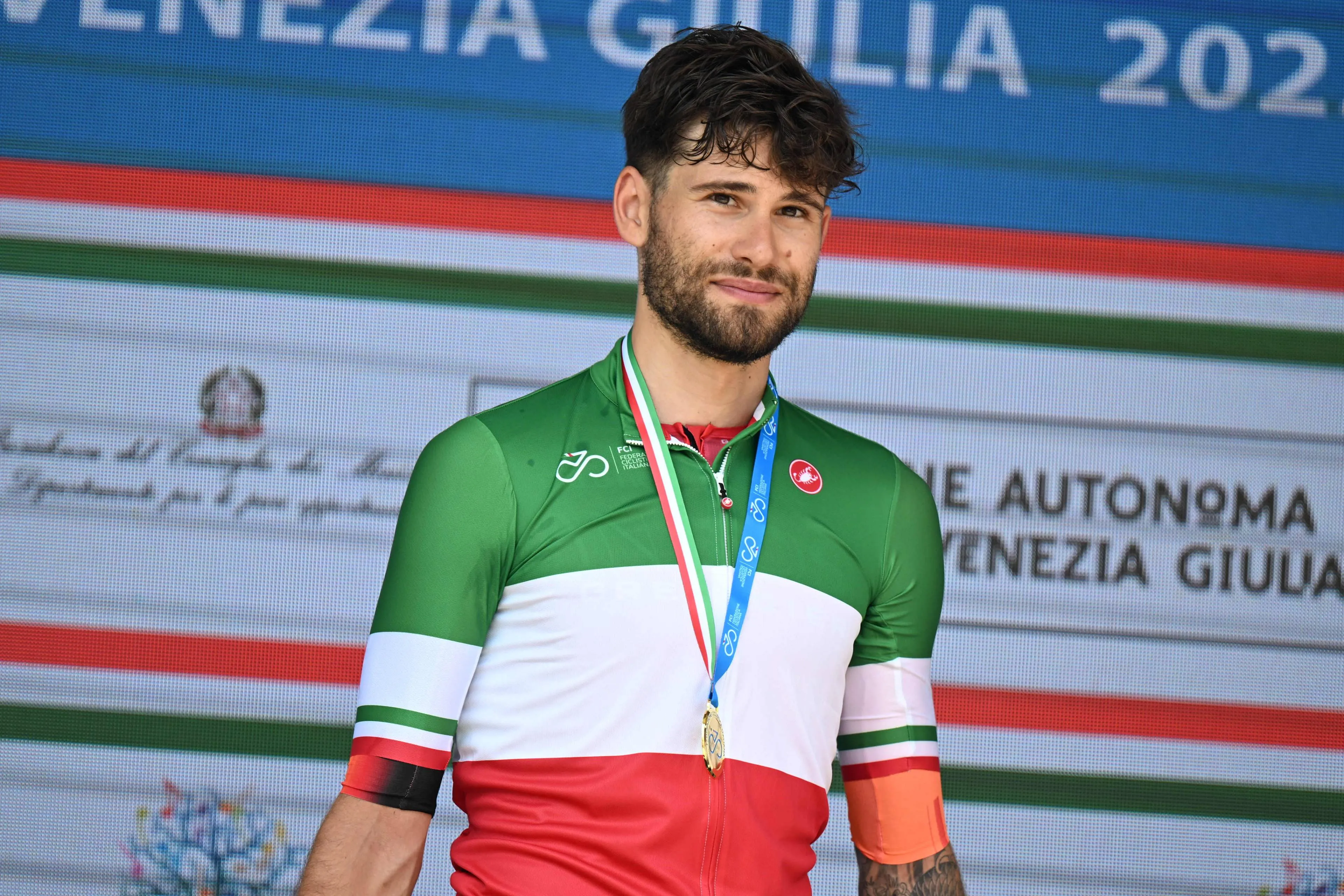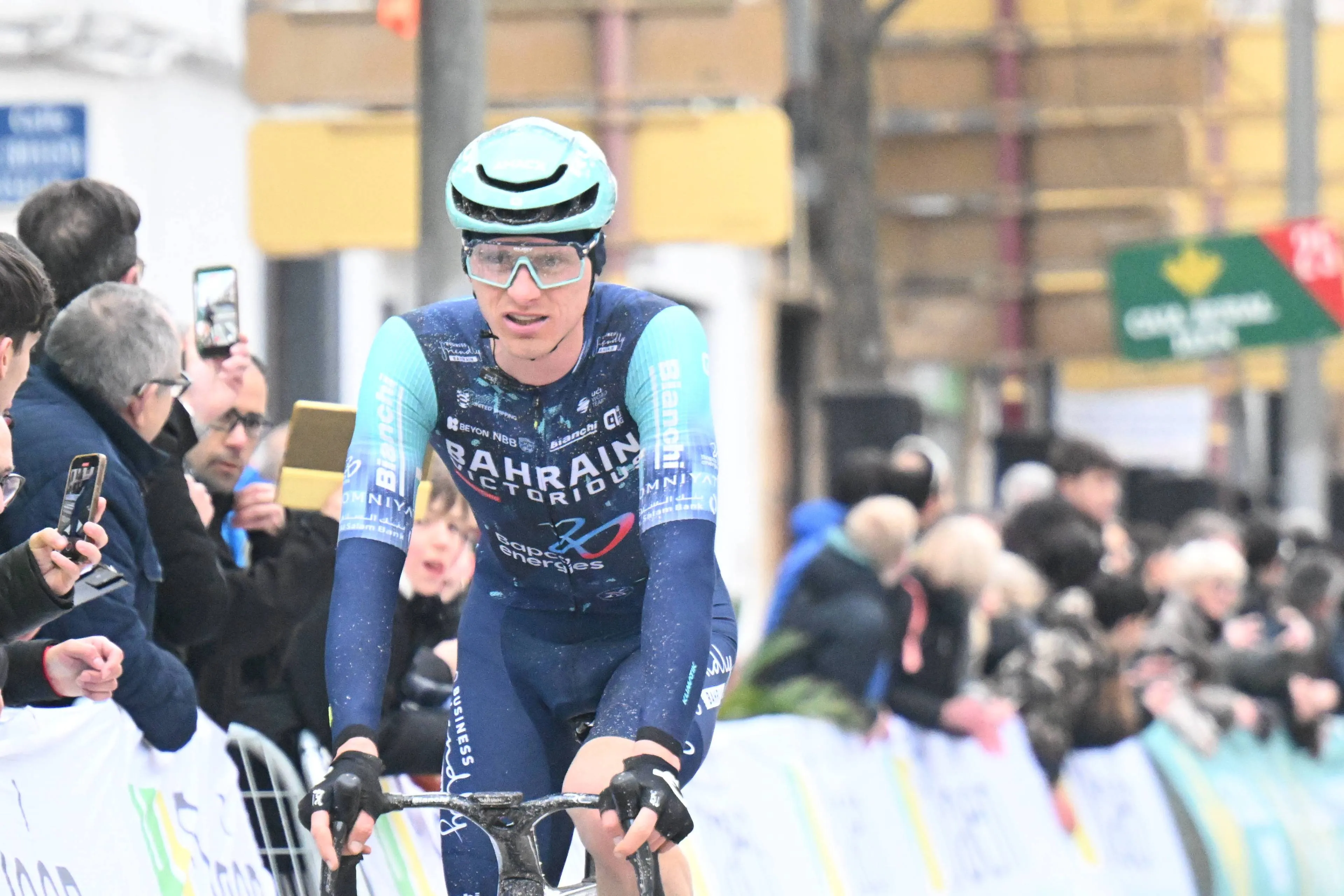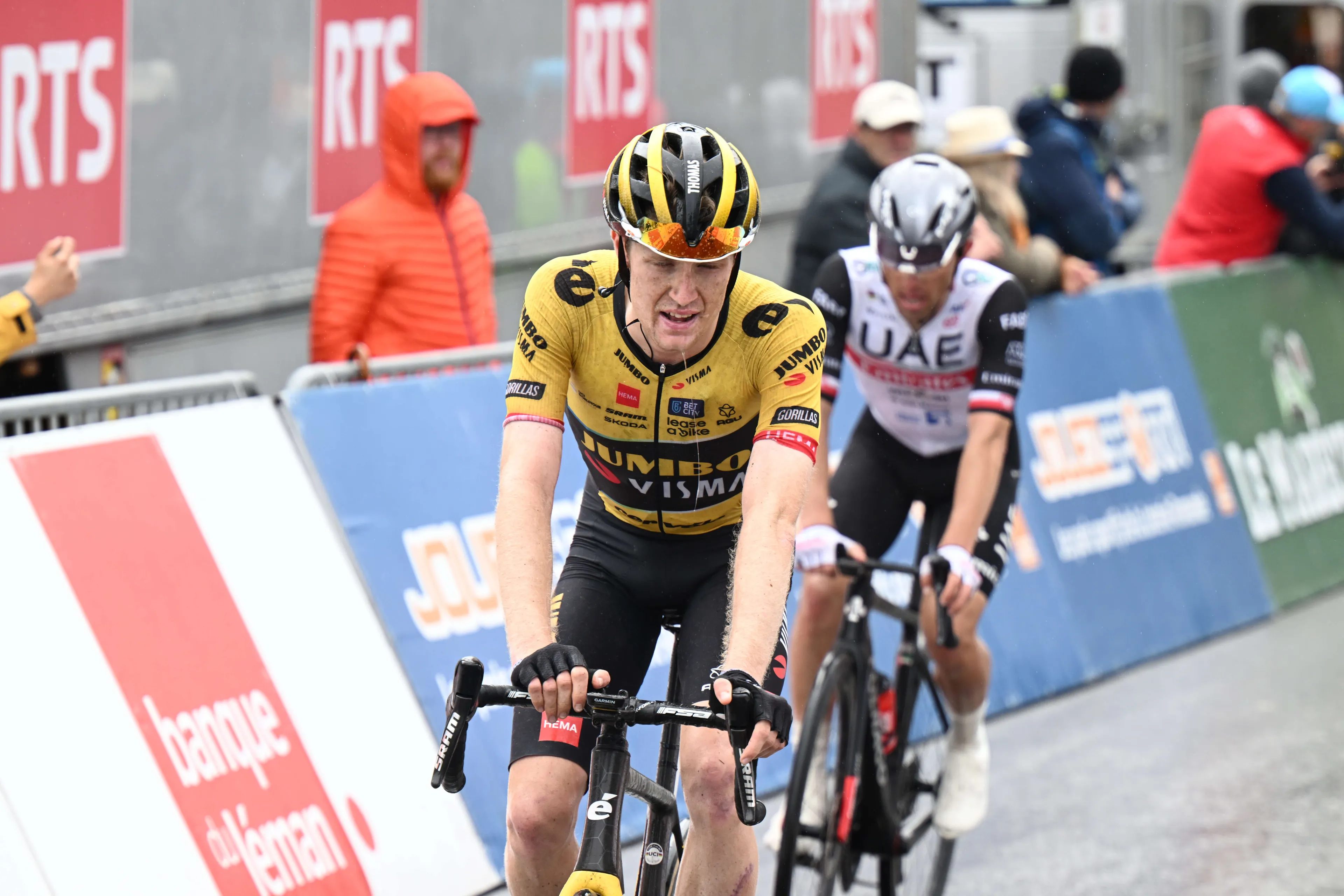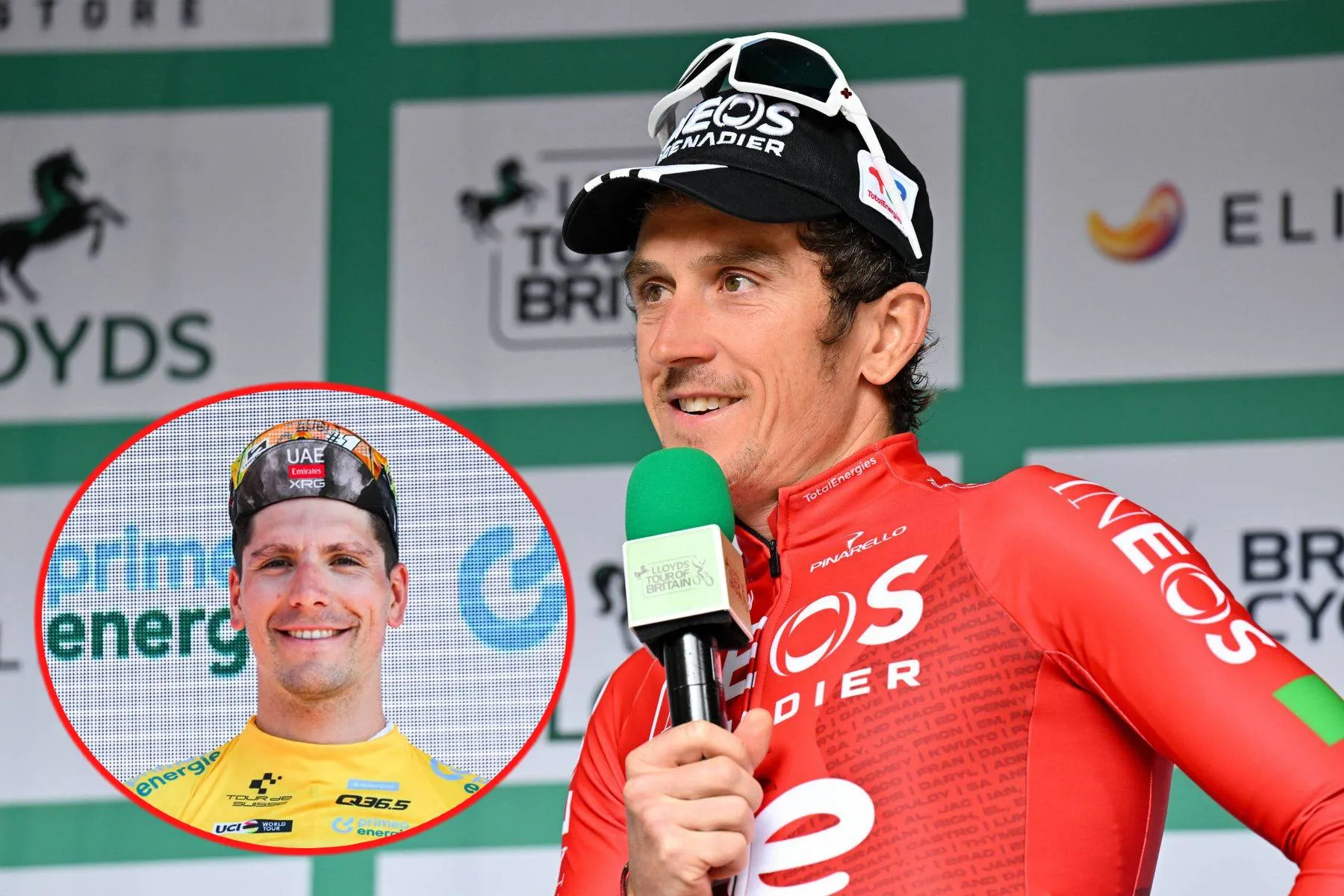Analysis: Who can challenge Slovenia in the World Championship road race?
CyclingFriday, 27 September 2024 at 19:30

This Sunday, cycling fans around the world will be treated
to one of the most highly anticipated races of the season – the men’s road race
at the 2024 UCI World Championships. Held in Zurich, Switzerland, this year's
race features a brutal route with 274 kilometres of punishing terrain and over
4,200 meters of climbing. With such a demanding course, the road race is set to
favour both climbers and one-day specialists who thrive in the toughest
conditions. Defending champion Mathieu van der Poel will be lining up to
protect his rainbow jersey, but with top-tier challengers such as Tadej Pogačar
and Remco Evenepoel in the mix, he’ll face a monumental task to keep it.
The race will begin in Winterthur, where climbing starts
almost immediately, including a steep 1.3 km ascent at 10% gradient with 230 kilometres
still to go. From there, the riders will grind their way through a hilly
landscape before entering a challenging final circuit in Zurich. With such a
challenging route, strong teams will be crucial for riders hoping to control
the race, manage breakaways, and save their leaders for the decisive moments.
Slovenia
The team everyone is talking about is Slovenia. Slovenian
riders dominated the 2024 Grand Tour season, and they bring an all-star team to
Zurich, led by two of the sport’s biggest names: Tadej Pogacar and Primoz Roglic.
Pogacar, who is fresh off winning both the Giro d'Italia and the Tour de
France, and Roglič, who just secured his fourth Vuelta a España title, have
combined to win all three Grand Tours this year. But both riders are missing
one thing: a rainbow jersey.
Read also
This course suits them both to perfection. Pogacar excels in
hilly one-day races and has already proven himself in long, gruelling events
like Liege and Il Lombardia. Meanwhile, Roglic’s experience and form, as shown
by his Vuelta win, make him a formidable contender. The pair have shared
leadership responsibilities before, but the World Championships is a one-day
event, which might complicate matters. Can Slovenia afford to hedge their bets
on both riders, or will they be forced to rally behind just one as the race
unfolds? Its more than likely that Pogacar will be their sole leader, but Roglic
has shown time and time again that he can’t be discounted.
Whilst Slovenia boast a team to fear, they are certainly not
the only team with riders capable of racing for gold.
Belgium
When it comes to strength in numbers, Belgium is
consistently one of the most formidable teams at the World Championships, and
2024 is no different. Their leader, Remco Evenepoel, is coming into the race
with supreme confidence. Having won the 2022 World Championships and the 2024 Olympic
Road race, Evenepoel is an elite rider in one-day races and has all the tools
necessary to reclaim the rainbow jersey.
Read also
However, the big story for Belgium is the absence of Wout
van Aert. Van Aert was forced to abandon the Vuelta a España after a crash,
missing his opportunity to race at Worlds. His absence will be felt keenly,
especially since he was in spectacular form, winning three stages and leading
both the Points Classification and the King of the Mountains at the Vuelta.
Still, Belgium aren’t lacking firepower. Evenepoel will be
supported by an incredibly strong team, including seasoned riders like Victor
Campenaerts, who has proven himself as a powerful breakaway specialist. Tiesj
Benoot, another valuable teammate, offers strength in the mountains and on
tough terrain, while Laurens De Plus and Quinten Hermans bring further depth to
Belgium’s climbing capabilities. Lotto Dstny's Maxim van Gils and UAE Team
Emirates' Tim Wellens round out the squad, with Wellens providing a versatile
option for the hilly course.
Even without van Aert, Belgium has the capacity to control
the race and set up Evenepoel for a shot at glory. This team will be key in
policing attacks from other nations, and with the right tactics, Evenepoel
could find himself adding another world title to his already impressive
palmarès.
Read also
Netherlands
Mathieu van der Poel is the reigning World Champion, but
defending his title will not be an easy task in Zurich. While van der Poel has
been one of the most dominant riders in the Classics, winning the Tour of
Flanders and Paris-Roubaix earlier this season, this course presents a
different kind of challenge. The sheer amount of climbing could work against
him, particularly if teams like Slovenia or Spain push a brutal pace in the
mountains.
The Netherlands have brought a capable team to support their
leader, but they will face a delicate balancing act. Van der Poel will need his
teammates, including Oscar Riesebeek, Wilco Kelderman, and Sam Oomen, to help
him survive the toughest climbs. Bauke Mollema, another key team member, is an
experienced Grand Tour rider who could provide valuable assistance. However,
van der Poel may find himself at a disadvantage on this mountainous course,
especially if rivals attack on the steeper sections where his explosiveness may
not be enough.
If van der Poel can remain in contention through the climbs,
his chances increase significantly, as few riders can match him in a fast,
technical descent or a small-group sprint. The Dutchman’s versatility and sheer
determination should not be underestimated, but his team will need to ride a
near-perfect race to keep him in contention for the win.
Read also
Spain
The Spanish team is built for a course like this. With
multiple strong climbers in their ranks, Spain will be looking to play an
aggressive game, especially as they have no single standout favourite but
plenty of options. Leading the charge will be Enric Mas, fresh off a
third-place finish at the Vuelta a España. Mas is in great form and has proven
himself capable of racing the best time and time again.
Mikel Landa, Pello Bilbao, and Carlos Rodríguez are three
more riders who excel in the mountains. Bilbao just finished second behind Pogacar
at the GP de Montréal, highlighting his excellent form. Landa and Rodríguez
were both prominent figures at the Vuelta, with Rodríguez cementing his status
as one of Spain’s top young riders.
Read also
The rest of Spain’s squad offers depth and versatility, with
Pablo Castrillo, who won two stages at the Vuelta, and Alex Aranburu, a
classics specialist, rounding out the lineup. Aranburu’s abilities on rolling
terrain make him a key figure if the race becomes more tactical in the latter
stages.
If Spain can use their numbers effectively and launch
attacks on the key climbs, they have a real shot at controlling the race.
However, they will need to coordinate well to ensure their leaders are
protected, and it will be interesting to see how they manage having multiple
riders who could feasibly contend for the medals.
Read also
Who Has the Edge?
Looking at the teams on paper, it’s clear that several
nations are bringing formidable squads to the World Championships. Slovenia
boasts the impressive duo of Pogacar and Roglic, making them a fearsome duo on
a course like this. Belgium, with Evenepoel, has the firepower to challenge,
while the Netherlands will be banking on van der Poel’s versatility. Spain,
with its wealth of climbers, could create chaos on the steep climbs if they
attack at the right moments.
Ultimately, the race will be shaped not only by individual
talent but by team tactics. Slovenia has the most balance with two top leaders
and strong support, but they’ll need to avoid internal conflict over who leads
the team. Belgium’s strength will be in their ability to control the peloton
and manage breakaways for Evenepoel, while Spain’s aggressive climbing approach
could make them a wildcard.
Who will emerge victorious? We’ll have to wait for Sunday to
find out, but one thing is certain – the 2024 World Championships is shaping up
to be a battle for the ages.
claps 1visitors 1
Just in
Popular news
Latest comments
- I was going to post the same comment. He just can’t catch a break.Pedalmasher20-02-2026
- Totally agree. This kid has a bright future.Pedalmasher20-02-2026
- The thing is, he never has to worry about his career because he can spend the rest of his life living rent-free in your head.antipodeanpedalfan20-02-2026
- That's true, but you can't count out a resurgence from him later like Vingegaard did in 2025 (although he was 10 seconds behind, not 30)
 Rafionain-Glas19-02-2026
Rafionain-Glas19-02-2026 - Lipowitz ddn't really keep up to the big boys today either.....mobk19-02-2026
- Yes, the guy is no fluke. Even if he fails to improve over the next 15 years he’ll do damage. That young blood is going to keep the establishment working hard.Mistermaumau19-02-2026
- This excuse is harmless, just quaint and amusing. The excuse I really disliked was when he accused a mechanic of improperly adjusting his saddle, endangering the mechanic's job: blaming others for your own limitations is a serious matter.
 maria2024202419-02-2026
maria2024202419-02-2026 - ok so this is impressive - I trashed this guy all winter, get a pro win before the anointing. against a quality field. And Onley and Riccitello look good too. fun to see young blood.mij19-02-2026
- Minor flaws.... thats like suggesting Genghis Khan was a bit aggressive with other countriesslappers6619-02-2026
- Then you carry on if that's what makes you happyslappers6619-02-2026
Loading
Write a comment
